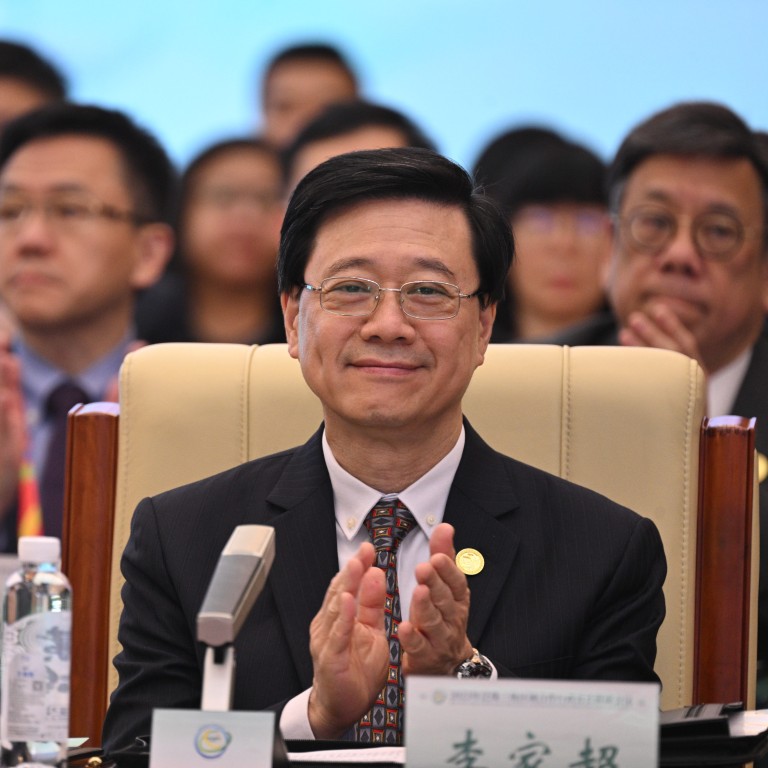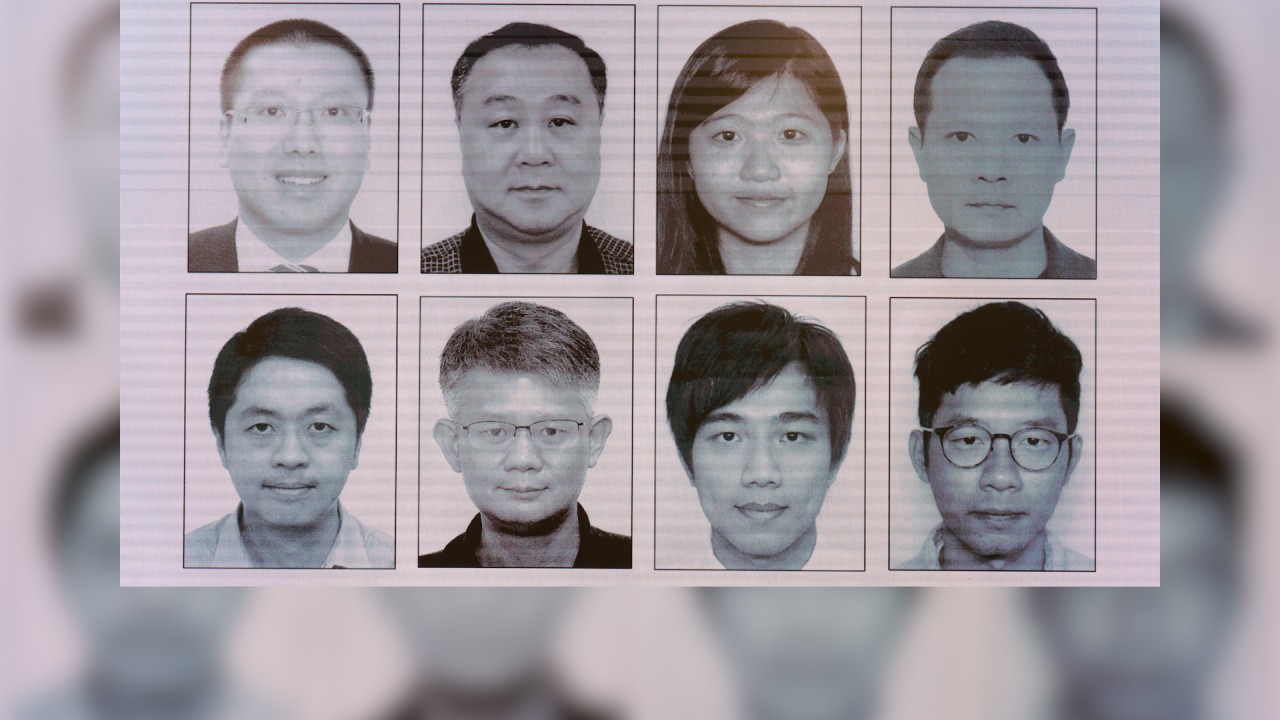
National security law in Hong Kong: 8 wanted suspects should be treated like ‘rats in the street’, city leader John Lee says
- City leader urges ‘everyone to be cautious’ about helping wanted opposition figures after police offer HK$1 million rewards for suspects’ arrests
- Lee also says all residents welcome to participate in coming district council election
Eight opposition figures wanted by Hong Kong police over alleged national security violations should be treated like “rats in the street”, the city’s leader has said, urging everyone to avoid all contact with them.
Police would “vigorously pursue” anyone accused of endangering national security and “strictly enforce the law”, Chief Executive John Lee Ka-chiu on Friday said.
The force on Monday announced a HK$1 million (US$127,873) reward for information leading to each arrest of the eight opposition activists, who are currently living overseas.
“We should treat the people wanted by police, especially those who violated the national security law, as rats in the street that should be avoided for our sake,” Lee said at a press appearance during a trip to Guiyang in Guizhou province.
‘Dozens of Hong Kong residents’ on police national security ‘wanted’ list
Lee was asked whether engaging in business or monetary transactions with the wanted figures would be a crime.
“It is because the crimes they are involved in are serious. Therefore, I suggest everyone be cautious in having contact with them,” he said. “Police will handle different behaviour and activities according to the law.”
Earlier this week, national security police arrested the former leader and four ex-members of disbanded opposition political party Demosisto in connection with alleged fundraising activities in support of Nathan Law Kwun-chung, sources told the Post.
Law, a former legislator, left Hong Kong after the national security legislation was adopted on June 30, 2020, banning acts of secession, subversion, terrorism and collusion with foreign forces.
He is among the eight activists targeted by the HK$1 million rewards. The others are former legislators Dennis Kwok Wing-hang and Ted Hui Chi-fung, unionist Mung Siu-tat, lawyer Kevin Yam Kin-fung and activists Finn Lau Cho-dik, Anna Kwok Fung-yee and Elmer Yuan Gong-yi.
They were last known to be living in Canada, Australia, the United States and Britain.
Article 37 and 38 of the national security law states that the legislation applies to everyone in the world and covers offences committed outside the city.
The rewards were condemned by Washington, London and Canberra, with the US State Department calling it “a dangerous precedent that threatens the human rights and fundamental freedoms of people all over the world”.
Hong Kong’s bounty for 8 security law suspects sends world ‘strong message’: Lee
Separately, Lee said all residents would be welcomed to participate in the coming district council election.
“District council elections will allow those who have a mind to participate in district affairs to carry out constructive works,” Lee said.
“I welcome everyone to participate in the elections. The government will only ban one type of people from the district governance, which is people who destroy Hong Kong’s interests, do not uphold the Basic Law and do not swear allegiance to the government.”
Democratic Party chairman Lo Kin-hei on Thursday said some of its members had expressed an interest in standing in the poll after the Legislative Council unanimously backed a bill that cut the number of directly elected seats on the councils.
Hong Kong security chief dares wanted activist Nathan Law to stand trial in city
The District Councils (Amendment) Bill 2023, introduced by the government in May to “depoliticise” the municipalities, will take effect on July 10 and lays the groundwork for an election to be held by the end of the year.
District councils will have 470 members in total, with the proportion of directly elected representatives slashed from almost 95 per cent to 19 per cent.
The remaining seats will either be appointed by the chief executive or selected by 2,490 members of three district committees made up of Beijing loyalists.
Candidates will have to contend with the new system’s tough vetting procedures to screen out possible national security threats. Contenders must also obtain nominations from the district-level committees.


